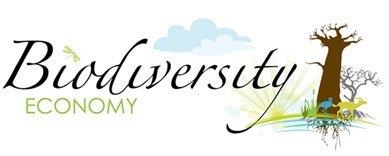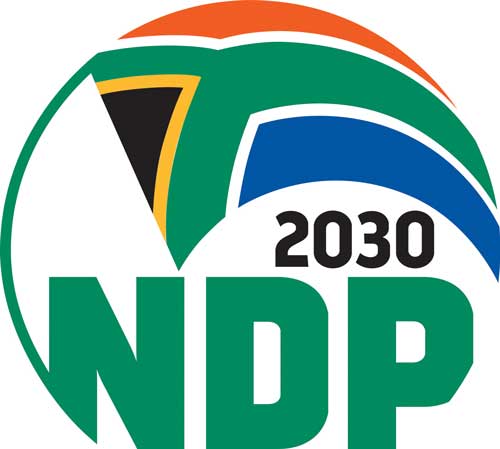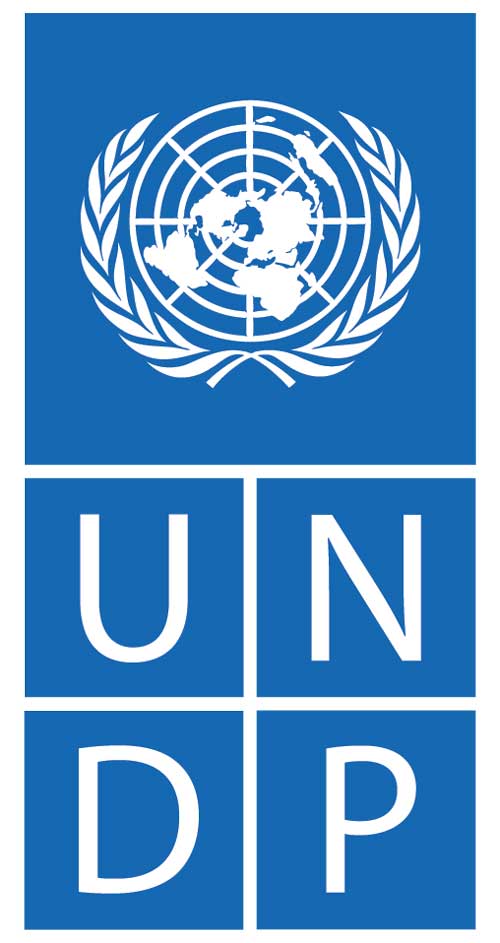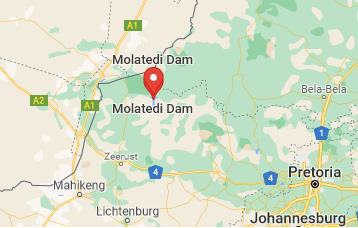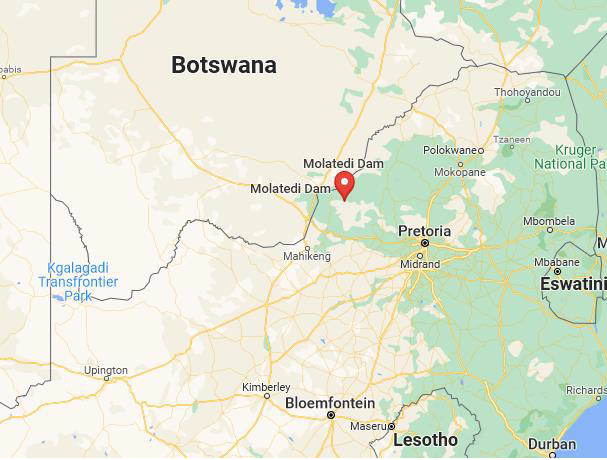Mputsu Farming and Tourism Investment (Pty) Ltd
PROJECT NAME / SITE:
Mputsu Farming and Tourism Investment (Pty) Ltd
--------------------------------------------------------
Business Registration number (if applicable):
2020/484234/07
--------------------------------------------------------
INDUSTRY:
Mputsu Farming and Tourism Investment
--------------------------------------------------------
PROJECT LOCATION:
Portion 2 Koedoesfontein 272 KP, Madikwe District, Madikwe, North West, 2838
Business Owner(s):
Mr. Thabo Kenneth Molamu
--------------------------------------------------------
MAIN CONTACT PERSON:
Mr. Thabo Kenneth Molamu
--------------------------------------------------------
PROJECT PARTNERS:
- SANParks Wildlife Donation Programme
- Woolworths (offtake agreements)
- Department of Agriculture, Land Reform and Rural Development
--------------------------------------------------------
Investment Range / ROI
Public or Private Sector
This is a Private Sector Opportunity
When was your business established?:
Acquired Farm in 2017, Company incorporated in 2020
Environment
The project delivers multiple environmental benefits:
- Habitat Protection
- Species Conservation
- Resource Efficiency
- Water Resource Protection
- Indigenous Vegetation
- Enhanced Security
- Ecosystem Services
Social Impact
The project delivers significant social benefits:
- Employment Creation
- Skills Development
- SMME Development
DESCRIPTION OF THE MPUTSU FARMING AND TOURISM INVESTMENT (PTY) LTD
Mputsu Farming and Tourism Investment (Pty) Ltd represents a pioneering venture in South Africa's growing wildlife economy. The project integrates game farming, wildlife conservation, high-end ecotourism, and game meat processing within a vertically integrated business model.
The company currently owns a 1,200-hectare game farm in the biodiversity-rich North West Province. Negotiations are underway to incorporate an additional 3,000-hectare property (Schoonkloof), extending the total conservation area to 4,200 hectares. The flagship component of this investment opportunity is the establishment of a modern game meat abattoir designed to process up to 25 carcasses per day, addressing the rising demand for high-quality, ethically sourced game meat in both domestic and international markets.
The project also includes the development of a contemporary 12-room mountain lodge to enhance tourism revenue streams and expand conservation impact. The Farm is strategically located adjacent to the internationally acclaimed Madikwe Game Reserve with views of the picturesque Molatedi Dam, creating superior ecotourism opportunities.
PROBLEM THE PROJECT IS ADDRESSING
The project addresses several interconnected challenges:
- Lack of certified game meat processing facilities that meet export standards and food safety requirements
- Limited economic opportunities in rural areas lead to poverty and unemployment
- Pressures on wildlife habitats and biodiversity from unsustainable land use practices
- Limited participation of black entrepreneurs in the wildlife economy value chain
- Inconsistent supply of high-quality game meat products to premium markets
- Poaching threats to wildlife populations due to limited economic incentives for conservation
THE PROPOSED SOLUTION
Mputsu Farming and Tourism Investment has developed an integrated business model that combines wildlife conservation with sustainable economic utilisation through multiple complementary activities:
- Game farming and wildlife breeding programmes on the 1,200-hectare Koedoesfontein property, with plans to expand to 4,200 hectares through the acquisition of Schoonkloof;
- Sustainable hunting operations that generate revenue whilst maintaining ecological balance;
- Tourism accommodation facilities, with plans for a new 12-room mountain lodge development;
- Game meat processing through an abattoir facility that creates value-added products for retail markets;
- Anti-poaching services that protect wildlife assets and contribute to regional security.
This integrated approach creates multiple revenue streams while ensuring the property's long-term ecological sustainability. The business model demonstrates how black entrepreneurs can successfully participate in and transform the wildlife economy sector.
NATURE OF BUSINESS
Mputsu Farming and Tourism Investment has created a comprehensive solution through a vertically integrated wildlife economy business with four complementary components:
Game Farming and Conservation:
company manages wildlife populations through scientific ecological studies and breeding programmes, including participation in the SANParks Wildlife Donation Programme. The Farm hosts diverse species, including recently acquired White Rhinoceros, Buffalo, Eland, Red Hartebeest, and Black Wildebeest.
State-of-the-Art Abattoir:
Establish a modern game meat processing facility in the Bodirelo Industrial Park within the Buchanala Special Economic Zone, designed to meet the highest hygiene and regulatory standards for domestic and export markets.
Premium Market Access:
The company has secured offtake agreements with Woolworths and other major retailers, providing a solid foundation for consistent revenue generation.
Luxury Ecotourism:
Development of a 12-room contemporary mountain lodge to provide exclusive nature experiences while diversifying revenue streams and enhancing the financial sustainability of conservation efforts.
THE BIODIVERSITY AND CONSERVATION PRIORITIES OF THE PROJECT
- Expanding protected wildlife habitat through acquisition and conservation management of private land
- Wildlife population management based on scientific ecological studies that balance species needs with vegetation availability
- Protection of endangered species, including White Rhinoceros and rare antelope
- Conservation of Indigenous vegetation, particularly endangered tree species, including Marula trees
- Water resource protection, including regular cleanup operations for the Kolonist River that runs through the property
- Anti-poaching operations that extend beyond the Farm's boundaries to support regional conservation efforts
- Providing helicopter support for broader anti-poaching initiatives in collaboration with government reserves
WHAT ARE THE EXPECTED OUTCOMES / IMPACT
Economic Development:
- Establishment of a viable wildlife economy enterprise integrating conservation, tourism, and sustainable utilisation
- Creation of 25 current jobs, increasing to approximately 54 lodge staff and 8 permanent farm staff positions
- Development of a wildlife economy hub in the North West Province that stimulates related businesses
- Value addition to game products through certified processing, increasing market value and export potential
Job Creation:
- 25 current staff (18 from local communities)
- Additional jobs through lodge expansion (targeting 90% local employment, 95% black South African employment, and 60% female employment)
- Indirect employment through the supply chain, including logistics, packaging, and maintenance services
- Skills development in wildlife management, hospitality, meat processing, and anti-poaching operations
Conservation:
- Protection and expansion of 1,200 hectares of wildlife habitat, with plans to increase to 4,200 hectares
- Breeding programmes for various wildlife species, including threatened and endangered species
- Enhanced anti-poaching capabilities, including helicopter support extending to neighbouring conservation areas
- Sustainable wildlife utilisation demonstrates the economic value of intact ecosystems
Social Impact:
- Economic empowerment of surrounding communities through employment and entrepreneurship opportunities
- Skills transfer and capacity building, particularly for women and youth
- Enhanced food security through sustainable protein production
- Conservation education and awareness in nine surrounding villages
- Black economic empowerment in a traditionally white-dominated sector
- Preservation of cultural heritage and Indigenous knowledge systems
BARRIERS THE PROJECT FACES
The project faces several challenges that require strategic intervention:
Environmental challenges:
Extreme weather events, including floods that damage infrastructure and fencing
Regulatory hurdles:
Delays in permit issuance affecting hunting operations and seasonal revenue generation
Market constraints:
Competition from established players in game meat processing and luxury tourism
Community engagement:
Limited uptake of opportunities by local communities despite outreach efforts
Skills availability:
Challenges in recruiting and retaining qualified staff in rural locations
Infrastructure limitations:
Reliable water and electricity supply in a remote location
Financial constraints:
Access to growth capital for expanding operations and implementing new initiatives
Security concerns:
Poaching threats to valuable species, particularly rhinoceros, require significant security investment
THE NATURE OF CAPITAL INVESTMENT OR SUPPORT REQUIRED
The funding support required:
| Activity | Amount Required |
| Abattoir equipment upgrades | R3,500,000 |
| Construction of 12-room mountain lodge | R46,900,000 |
| Game farm expansion (acquisition of Schoonkloof property) | R15,000,000 |
| Anti-poaching infrastructure and equipment | R2,500,000 |
| Working capital for operations | R2,100,000 |
| Total: | R70,000,000 |
PROJECT LOCATION
The project is located in the biodiversity-rich North West Province of South Africa, strategically positioned adjacent to the internationally acclaimed Madikwe Game Reserve. The property falls within an important wildlife corridor and includes habitat for numerous species of conservation concern. The area hosts diverse vegetation types and is part of the broader savanna biome that supports significant biodiversity. The landscape features a variety of habitats, including woodlands, grasslands, and riparian zones along the Kolonist River, contributing to high species diversity and ecological resilience.
PROJECTS PROMOTION TO EXPANSION OF PROTECTED AREAS
The project directly contributes to the expansion of protected areas through:
- Secure conservation management of the existing 1,200-hectare Koedoesfontein property
- Ongoing negotiations to incorporate an additional 3,000-hectare Schoonkloof property, which would increase the protected area to 4,200 hectares
- Wildlife management practices that enhance habitat quality and species diversity
- Protection of water resources, including the Kolonist River that flows through the property
- Creation of wildlife corridors that connect with neighbouring conservation areas

